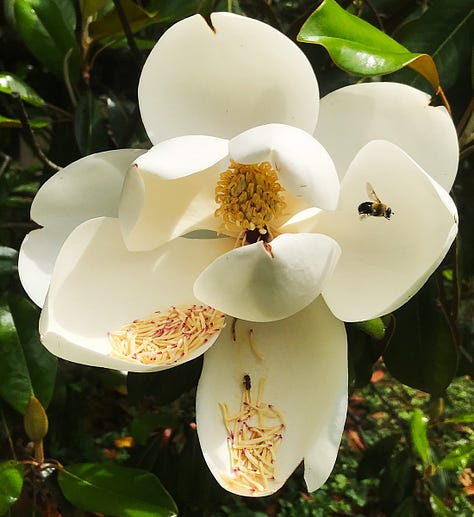
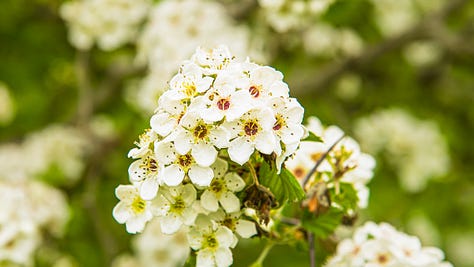
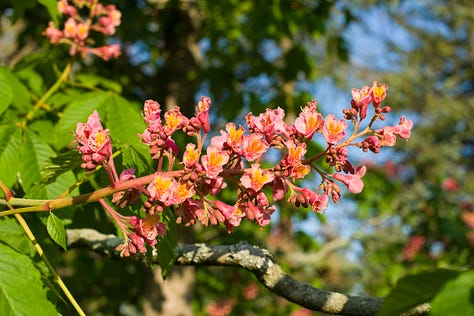
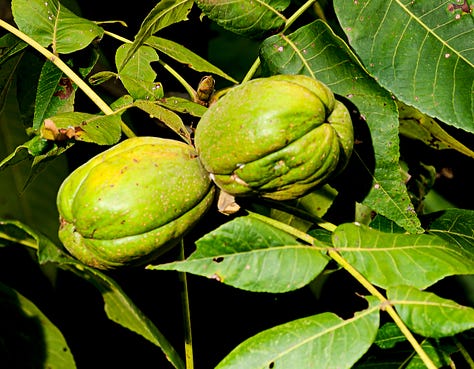
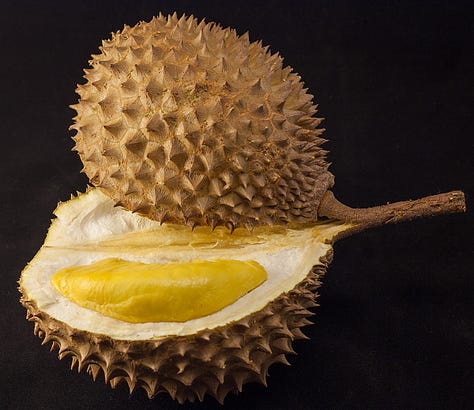
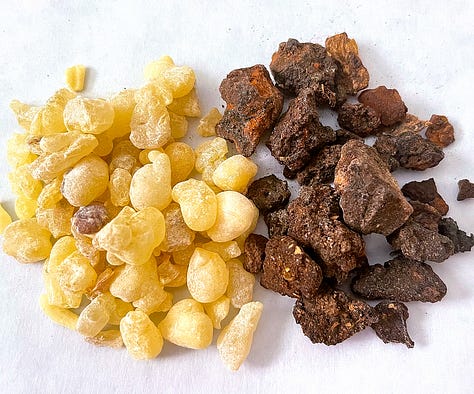
One night as I walked into the jungle near my home in Malaysia, I was anticipating interesting things, but not the drama to come. I’ve always liked walking in the woods at night, especially in the jungle. You may see less, but your senses of sound and smell are heightened. Jungle fragrances are complex and constantly changing. One moment you may smell rotting vegetation, another the sweet odor of flowers, yet another the pungent odor of a passing animal. This night, after an hour of walking, my senses were overwhelmed by the sudden presence of a heavy, intensely sweet fragrance, with hints of lavender, cinnamon, and black pepper. The odor grew and grew, and I knew there was a big flowering event beginning.
The flowering behaviors of trees are complex, and we will discuss them more in future stories. The trees I was smelling that night were Shoreas, one of the most dominant tree genera in the Asian tropics. They are mast-flowering and -fruiting trees, and may only flower every few years. But when they do flower, they put on a great show.
I sat comfortably under a tree, my back against a broad, dark stem. I spent the night there, allowing the scent to overwhelm me. Flowering, and the scent, began in the early evening. At about 4 am, white flowers rained down on me, the petals drifting down in the still air and soon covering the ground. Flowering was finished, and the busy pollinators, mostly tiny thrips, had also finished their work.
I will come back to the complexity of tree reproduction in future stories, but for now, let’s focus on the smells. Trees and other plants produce thousands of volatile chemicals that we can smell. I have been interested in plant volatiles for my whole career, and did my doctoral dissertation on some of the stress-related volatiles that trees produce.
Plant volatiles are everywhere. Many of them are commercially valuable, such as the frankincense and myrrh in the pictures above. You are exposed to these scents constantly, from the fragrance worn by the person next to you on the train, to the chemicals used to clean your kitchen. The fragrance industry is worth $65 billion US a year and is growing rapidly. Most of its products are obtained from plants, and many of them are collected from wild trees.
There is a strong relationship between our ability to smell plant volatiles and our health. Read on to see why our olfactory abilities affects our health.
For a long time, our ability to smell plant volatiles was taken as a sign of health. We humans have remarkable olfactory senses: we can distinguish about 1 trillion different chemical odor. My aunt lost all her sense of smell to an illness as a young adult, and this made life difficult for her. Others lose their sense of smell as they age, and this is considered an early sign of neurological problems such as Alzheimer’s or Parkinson’s Diseases. As a result, there has been considerable research on the human ability to smell plant odors. I participate in a neurological research program as a volunteer. Periodically, I am asked to do scratch-and-sniff tests to gauge changes in my olfactory sense.
Now, though, thanks to the work of a small group of scientists, we know that we have it backwards: instead of age and illness causing our sense of smell to decline, using our sense of smell can actually ward off many of the illnesses associated with age. Dr. Michael Leon is a neurologist who has devoted much of his career to the relationships between scent and an array of neurological problems. Dr. Leon’s memory loss web site explains the underlying science in nontechnical terms. A full list of his publications is at Research Gate.
Dr. Leon and others have recently shown that regularly smelling plant volatiles is therapeutic and may prevent or delay the onset of many neurological disorders associated with age and with autism. Neither Dr. Leon nor I are physicians, and neither of us is recommending a course of action for you. I can tell you, though, that I have an array of plant oils that I smell twice a day. Dr. Leon now has a company producing a small device called a MemoryAir. This device releases 40 different pleasant scents into your room as you sleep. Results of clinical trials are very promising.
The reason our sense of smell is so closely tied to memory is simple: of all our sensory nerves, the olfactory nerves in the back of the nose are directly connected, via a short pathway, to the memory and cognition functions of the brain.
We can improve our smell, and therefore probably improve memory and cognition, without an expensive machine at our bedside. Going outside in the natural world - a park or forest, or even along a tree-lined street - and carefully paying attention to your breathing, and to the smells around you is something we can all do.
A big question for me, and one not fully understood, is why we have such acuity to the smell of plants. I will revisit this subject in future stories. In the meantime, get outside and smell something!



I went to Kew Gardens last month with a friend who was soon to return to her native Japan. We spent the whole day stroking and smelling flowers, describing them to each other and falling into a world of sensory delight quite different from that of the many folks who were taking photos and videos. I love a picture of a plant as much as the next person, but there was something so companionable, almost reverent, about the silence within which we wandered other than our few descriptive words. What a day!
Thankyou for this. I’m always delighted to hear one more story on how we are connected to nature and need it for our well being. I’m going to go smell some flowers now!